Santuri Academy: A game changer for East Africa’s electro scene
East Africa is an important breeding ground for diverse electronic genres such as gengetone and the localised form of Chicago drill, with many talented musicians consistently finding new ways to connect their language, culture and experiences with sounds originating outside of Africa.
 Students attending learning session at the Santuri Electronic Music Academy in Nairobi, Kenya.
Students attending learning session at the Santuri Electronic Music Academy in Nairobi, Kenya.
However, an apparent lack of music education and resources to harness their skills means that a vast amount of musical talent in the region often goes uncultivated and underdeveloped. This makes the work of organisations such as the Nairobi-based Santuri Electronic Music Academy (SEMA), a non-profit organisation committed to educating musicians in the East African region, crucially important.
Santuri’s journey started in 2004 before its co-founders David Tinning and Gregg Tendwa took the big leap of establishing a formal institute for music education. Prior to starting the academy, they offered primary learning activities like music production and were involved in collaborative recording projects, consultancy services and event organisation to promote East African artists. But the feedback they received from their students was that the courses were too short and hastened.
“We wanted to develop those initiatives into something more concrete and impactful,” Tinning says. “A lot of feedback Gregg Tendwa and myself had received throughout Santuri’s journey was that our interactions with artists and producers were pioneering and innovative but lacked follow-up in terms of the longer term.”
In an effort to provide more effective and sustainable music education, Tinning and Tendwa drew up an in-depth survey that asked some 250 participants – including DJs, producers, promoters and label executives – to share the gaps in skills they thought were holding back music makers from developing their careers. They also consulted 30 organisations working in Kenya to share ideas about the types of mentorship services that were missing in the industry. “This gave us a clear idea about the topics we wanted to focus on,” Tinning says.
Common issues identified were lack of access to music-making tools, community spaces, networks and educational opportunities, which became the areas that SEMA would concentrate on. The project then secured funding from Goethe-Institut Nairobi and the German Development Agency under the JENGA CCI project.
Tinning and Tendwa assembled a team of inspired "misfits" who excelled as artists and shared in the common belief that education could bring value for the local music scene. The tutors at the academy include Emma Nzioka (DJ Coco Em), Felix Mwitah (Budalagi), Justin Doucet, Sharon Onyango-Obbo, James Ler, Wairumu Sisian, Alina Oswald, Victor Kimina and, more recently, Bryan Murgor (Sense).
The academy now provides a comprehensive six-week course that gives artists a rich learning experience, which is followed by additional support through an alumni programme. The courses offer a range of modules including an in-depth look into digital audio workstations like Ableton Live, sound banks, digital instruments, recording, sampling, mixing, live performance of electronic music and wider music business topics such as music rights and digital distribution.
“What’s more, unlike the early days of Santuri, we have a 100% East African teaching faculty made up of accomplished artists and producers,” Tinning said. “Obviously, this is a great development because it allows us to nurture talented East African creatives who also have teaching skills, instead of relying on external practitioners. We also put a lot of emphasis on the cultural aspects of music making such as examining the ethical ways in interacting with traditional artists and cultures, tracing the lineage of electronic music back to its black roots, and encouraging students to engage in dialogues on topics around gender, class and identity.”
More recently, the NPO engaged the Catalyst Institute in Berlin to run the Train the Trainer programme, which helped in further refining the academy’s courses to make them more relevant for students of all levels. “Ultimately, we want SEMA to be an internationally accredited and respected leader of music education in East Africa, with meaningful partnerships around the globe.”
Apart from Goethe-Insitut and the GIZ’s financial support, Santuri runs various other projects that are either self-funded or seeking additional support for upscaling in the future. “As an example, we provide studio space and gear loan services to the wider community. We run showcases, online and in person, and we host a radio show on Oroko Radio in Accra, Ghana, where we showcase East African and electronic sounds more broadly,” Tinning says.
So what are the challenges for music makers in East Africa? “We found that access to supportive community spaces was lacking, as well as access to software, hardware and all the tools of the trade that many artists globally take for granted. Music software, for instance, is priced for artists in Europe and the US who earn significantly more income, and as such cracked versions of software proliferate in Kenya and Africa. This puts artists at a disadvantage in terms of software updates or tech support. Customs duty on musical goods make studio and production gear prohibitively expensive, often meaning that cheap imitations or outdated tech is all that’s available. Our partnerships with companies like Ableton, Native Instruments, Shure and ADAM Audio help us mitigate that.
“What’s more, there remains serious issues around gender that have yet to be tackled seriously. Our 2020 survey found that non-male identifying artists feel they have much fewer opportunities than their male counterparts, they feel unsafe in many music production and performance spaces, and are treated either patronisingly or with hostility by male music practitioners.”
But Tinning says there has been increasing recognition of the East African electro music scene, which bodes well for the future of music makers in the region. “We have seen a lot of improvement on this topic since Santuri began back in 2014. We can now point to festivals and world tours by East African DJs and artists, and platforms such as Boiler Room and Resident Advisor clamouring to cover the latest sound from the region ... Globally, we’ve seen singeli from Tanzania, acholitronics and all manner of wild sounds coming from Rwanda and Uganda, and gengetone and drill blowing up from Kenya. Prior to these styles receiving global acclaim, it was perhaps hard for some people to believe there were such vibrant experimental-alternative electronic music existing in the region.”

























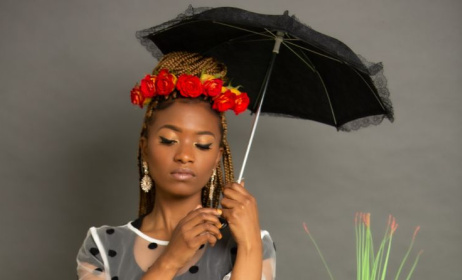
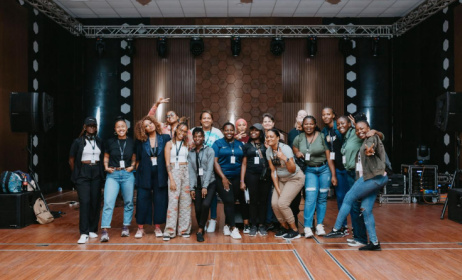
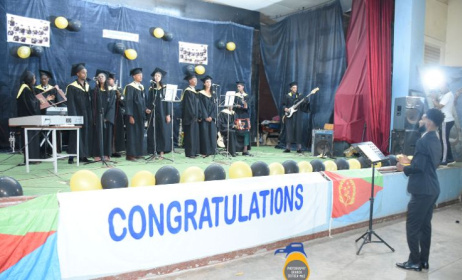

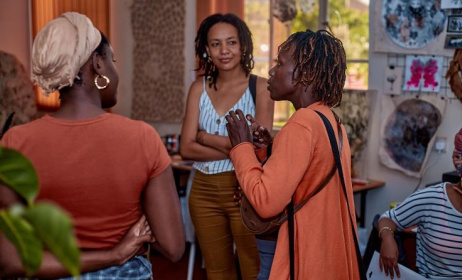
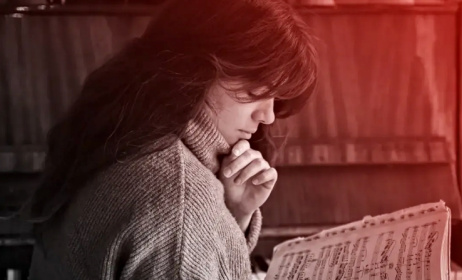



Comments
Log in or register to post comments